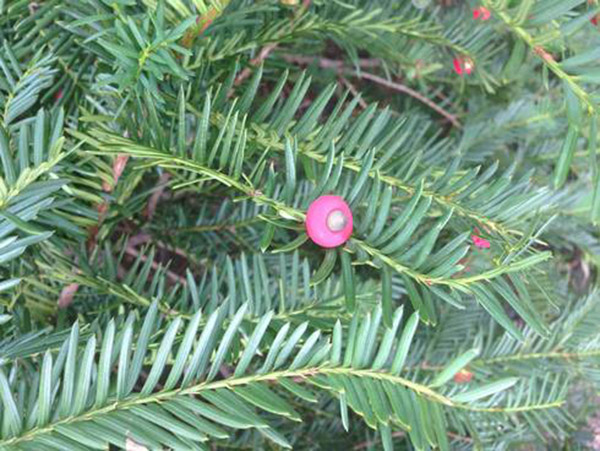This Holiday Season, Avoid the Evergreen, Yew; Extremely Toxic to Horses
 Michigan State University Extension
Michigan State University Extension
By: Thomas Guthrie, Karen Waite
When selecting plants to make your landscape more aesthetically pleasing around your horse barn and home, avoid yew.
You have put energy, resources, thought and time to build the best barn for your horse, assured they have plenty of space to roam, and are well cared for every day. With all of that accomplished, you are looking for the next project. That project may very well be to make your horse farm more aesthetically pleasing by doing some landscape work around the barn and home. Before embarking on this endeavor, it is important to consider the types of plants you wish to plant and if they can potentially be toxic to horses.
Michigan State University Extension has a resource bulletin available entitled: Ornamental Plants Toxic to Michigan Horses that will be helpful when considering the type of plants that should be avoided in close proximity to your horses.
One plant that is commonly used in landscaping is Yew. Yew is a popular evergreen shrub that will stay green throughout the year when most other plants go dormant making this an attractive landscaping shrub.
However, yew is extremely toxic to horses. Consumption of as little as six ounces of fresh Yew can often result in sudden death of a horse. Additionally, all members of the Yew family should be considered highly toxic to horses.
It is important to note that horses with access to traditional forages such as hay and grasses will generally avoid consuming undesirable plants. However, you may have experienced that occasional time when your horse has escaped from the pasture or you have observed them reaching through the fence to consume vegetation on the other side or when riding or leading your horse, they attempt to reach out to take a bite of whatever is green. In regard to all of these instances, evaluating the possibilities of any plant associated toxicity risks around your horse barn and home will reduce the chance of your horse getting sick from potentially consuming an undesirable plant in your landscape.










